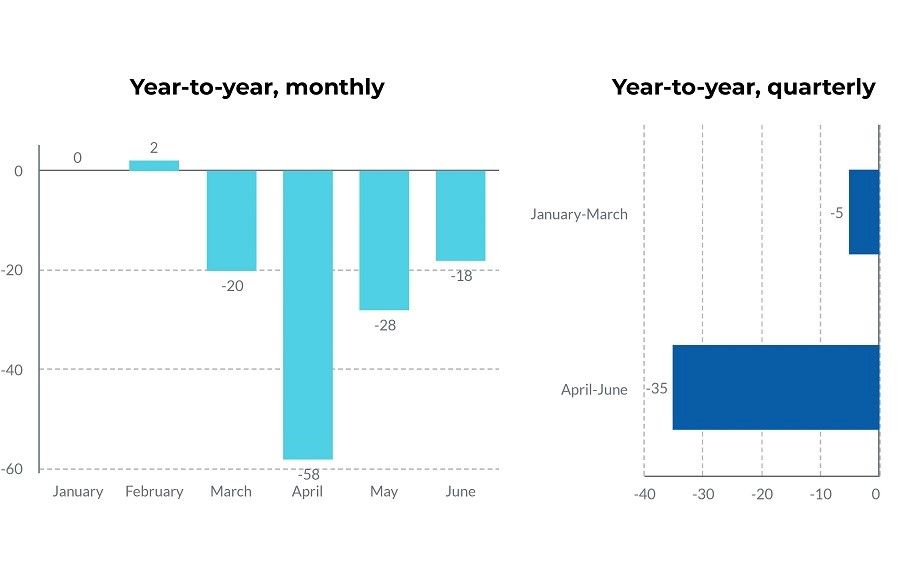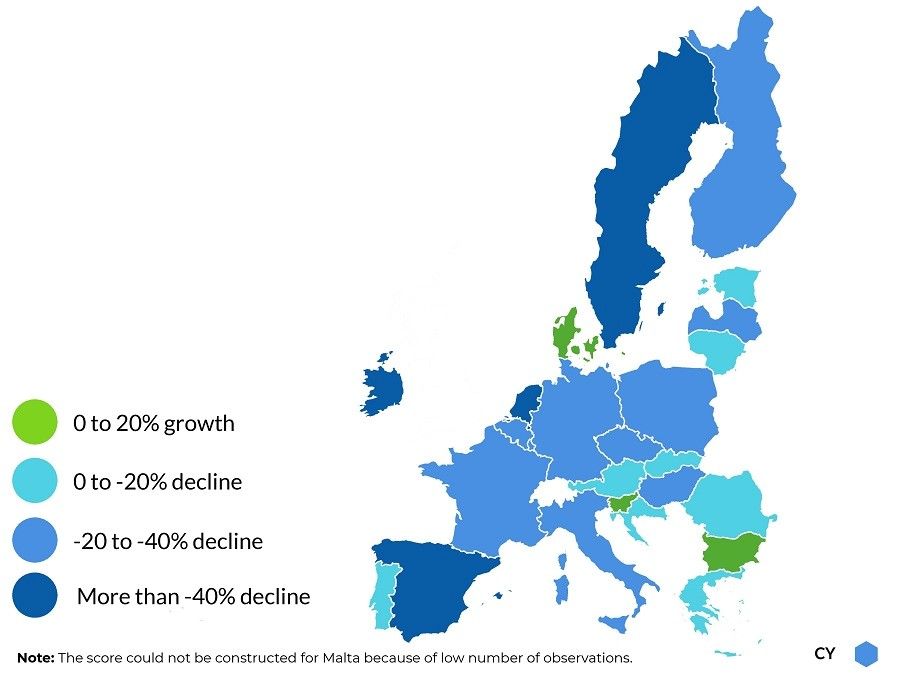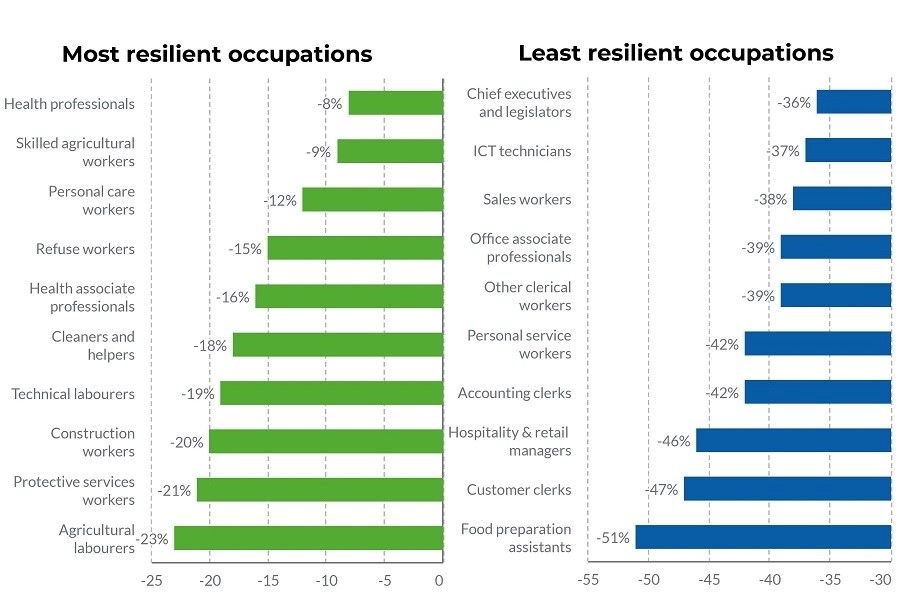
Coronavirus and the European job market: where the pandemic hit the hardest in spring 2020
European employers advertised 35% fewer jobs in online job portals in the second quarter of 2020 compared to the same period in 2019. This significant drop during the first lockdown, identified using Cedefop’s skills OVATE system, provides valuable insights into the impact the coronavirus crisis had on the EU labour market.
Online job advertisements make it possible to identify and analyse labour market developments more frequently, faster, and in more detail than conventional sources, such as vacancy surveys.
This decline in job advertisements appears even more dramatic considering that some might have remained online longer than usual after social distancing measures and lockdowns came into effect, as can be seen in the V-shaped time trend (Figure 1). At its start, many employers viewed the pandemic as a temporary disruption and remained positive about longer-term prospects. At the peak of the pandemic in April, online job ads fell by almost 60% compared to one year earlier. As the outlook improved, employers gradually resumed online advertising, potentially expecting an imminent ‘return to normal’.
Figure 1: Online job ads in the EU (January-June, 2019-20 comparison, %)

Source: Cedefop skills OVATE. Own calculations.
During the most critical period – March to June 2020 – online job postings fell by 31%. On average, the decline was more pronounced in western EU countries (-33%) than in eastern ones (-15%). Countries also differed in the way the online labour market started recovering after the first wave of the pandemic.
In some countries, such as Bulgaria, Romania, France and even hard-hit Italy, the number of job ads employers posted in June 2020 was higher than in June 2019. Online job markets in Sweden, Spain and Ireland remained depressed much longer. In Germany and Austria, after a swift online job market recovery in May, online job advertisements dropped again in June.
The developments reflect an interplay of national contexts, trends and policies:
- The coronavirus outbreak occurred at different times in different countries. In Italy, March saw the largest decline in online job advertisements, while in June the market was already recovering fast. In Sweden, where the online job market contracted throughout the March-June period, May was the worst month.
- Strategies to protect people from Covid-19 vary by country, affecting economic disruption and its impact on the online job market. The same holds for lifting Covid-19 measures. The decisions policy-makers made (e.g. speed of relaxation or withdrawal of measures) inevitably influenced the development of the online job market over time.
- In three countries – Denmark, Slovenia and Bulgaria – the number of online job advertisements grew in a year-to-year comparison (Figure 2). With a relatively easy shift to teleworking in Denmark, the disruption caused by the pandemic appears to have been less severe than elsewhere (see also Eurofound, 2020). In other countries – particularly in eastern Europe – the expansion of the online job market itself, which is likely to have accelerated because of the pandemic, was a mitigating factor in the decline of online job advertisements linked to coronavirus.
Figure 2: Online job ads in EU Member States (March-June, 2019-20 comparison, %)

Source: Cedefop skills OVATE. Own calculations.
In the EU as a whole, the absolute number of online job advertisements decreased for all occupations. As expected, the number of online job advertisements fell the most in areas such as hospitality or retail – sectors heavily hit by Covid-19 measures – but clerical jobs were also severely impacted. Online advertisements for jobs linked to provision of essential services (health professionals, cleaners and helpers, care workers, refuse workers, agricultural workers, and protective services workers) declined only slightly.
Figure 3: Online job ads by occupation in the EU (March-June, 2019-20 comparison, %)

Source: Cedefop skills OVATE. Own calculations.
The trends described offer a first glimpse into how the coronavirus pandemic is affecting and reshaping EU labour markets. Cedefop’s skills OVATE tool can be used for further analysis of what is happening in countries, regions and sectors. Thanks to its detailed and structured information on skills, the tool also offers unique opportunities to explore how skill needs are changing over time. Cedefop will continue to use skills OVATE to provide policy-relevant insights. Stay tuned!
More information
Cedefop (2019). Online job vacancies and skills analysis.
Cedefop (2019). The skills employers want!
Eurofound (2020). Denmark reports lowest level of job loss and financial insecurity in EU during Covid-19 crisis.
